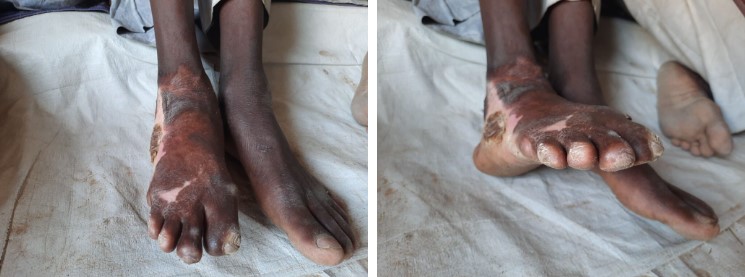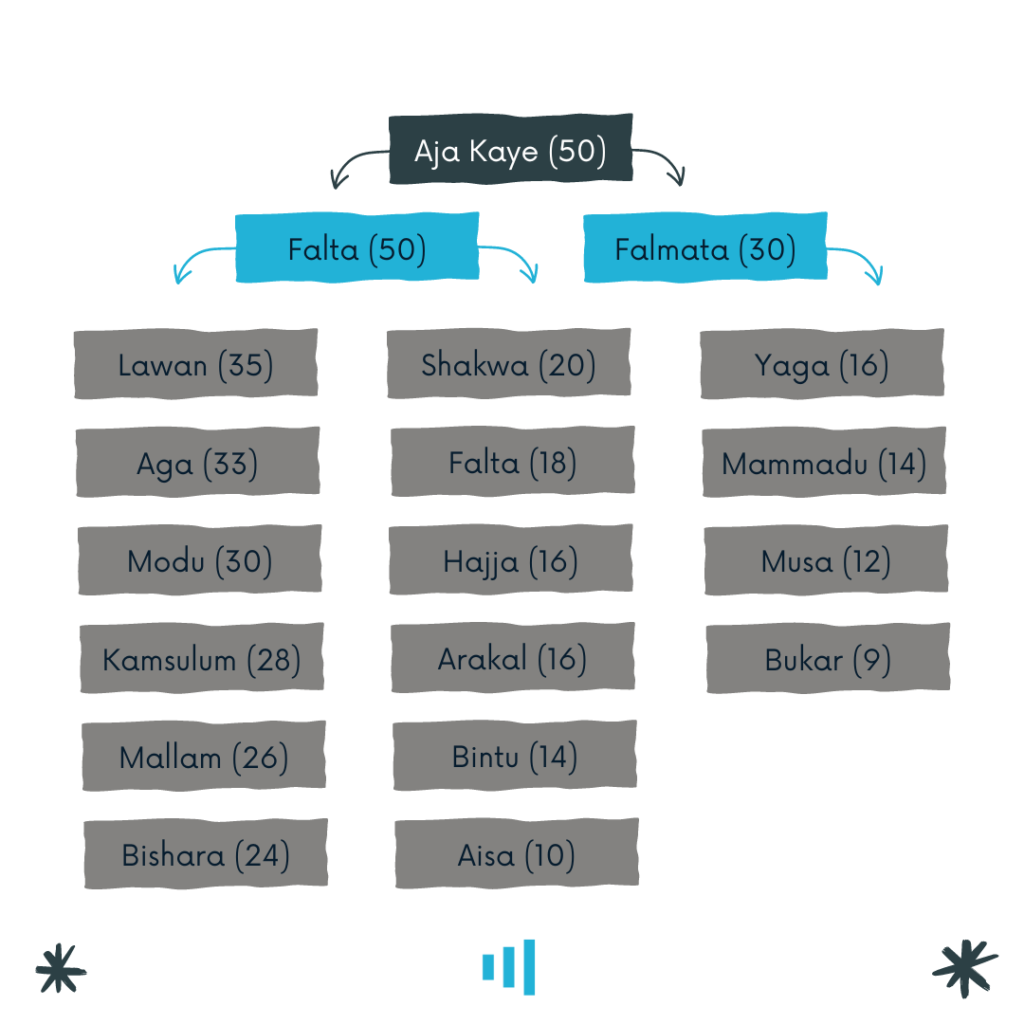Fifty years old Aja Kaye would still be living happily with his two wives, brother and 16 children if insurgency had not rocked Borno State. He might also have not lost his toes – but everything he had is now under the control of Boko Haram Insurgents.
Vividly, Kaye still recalls what happened seven years ago when he had breakfast with his family and was preparing for his farm in Jinaba, a village in Dikwa Local Government Area of Borno State. Aja, now a displaced person in Muna Garage el-Badawi IDPs camp in Maidugguri, tells his story to HumAngle’s Kunle Adebajo. It is a world against one man.
There had been a military operation in July 2015 to rescue Dikwa town from Boko Haram’s tight grip. Afterwards, soldiers stayed back to ensure the place was rid of insurgents. But in carrying out their duty, the military personnel treated civilians with great suspicion, indiscriminately arresting locals, especially males, according to HumAngle.
Aja recounted that after the military chased Boko Haram out of Dikwa, “they went on patrol to our village, two military vans parked in front of our house. They arrested four of us and accused us of being Boko Haram members. They took us to Dikwa, and then to Giwa barracks.”
The three others arrested were Aja’s brothers — Ali Mallam, 30, Ali Kaw, 40 and Mallam Koma, 60. Six years after, they were released, except for 30-year-old Ali Mallam who died in detention and Mallam Koma, who still remains with the military.
READ: FLASHBACK: Yakubu, The Brave Borno Student Who Died For Others To Live
But an investigation by the Army revealed that men released last year were not Boko Haram insurgents. Despite that, there were not compensated for wrong detention. They were also denied access to displacement camps.
LOOSING A LEG

Aja while in detention sustained injuries on his hands and the greatest one, on his right leg. It became bad while in an overcrowded cell where co-detainees marched on his legs repeatedly.
“Because of the congestion, people constantly marched on the wound on my leg,” he says. “It got worse and became like this. It started to rot and stink. You would see insects inside. Everybody was avoiding me because of the smell. The bones were broken and one was even sticking out.”
Now, Aja needs about N200,000 to treat his leg.
HIS FAMILY MOVED TO BOKO HARAM ENCLAVE
Other men released from detention joined their families, but not Aja. He had lost them alive to insurgents and they were not willing to return to him.
“I was expecting to meet every one of them,” says Aja. “But I have searched Mafa, Bama, Dikwa, and many places and haven’t seen them up to now.”
READ: From Farm to Detention — 8 Years After, Yeri’s Family Yearns to See Him Again
He later learnt that his family relocated to the Sambisa Forest area in Maiduguri, a stronghold of Boko Haram insurgents. He would send people to inform his family about his release but they felt indifferent returning to Janaba [their village] which is now known to be deserted.

Ahmadu Aga, former district head of Jinaba, says after Kaye’s release, some women were visiting the Sambisa Forest area. So they sent a message to Aja’s family.
“We told them Aja Kaye has come back, so you have to come, please. The women returned with a message. The family told them that they heard there was no food there. ‘We are a large family; how can we go without food? We can’t stay there because there is no food.’ The wife said, ‘Let him [Aja] try and join us.’ But Aja Kaye cannot go there.”
Ahmadu learnt that Falmata’s brothers had joined the insurgent group. So they seized her with the excuse that “her husband had gone to the land of the unbelievers” and she didn’t have to wait. Then they took her to Yale and married her to one of them. Falta followed with her children during the farming season.
“We are always asking people in the bush to come back. We tell them to come. But up to now, we don’t have updates from his family,” says Ahmadu.
Ahmadu Aga, fondly known as Ba Wakil, is also an internally displaced person in Maiduguri. His junior brother was released from Giwa barracks at the same time as Aja Kaye.
Aja is more cheerful when he talks about his family, especially his older wife, Falta. Falta is tall, fair, and has the Kanuri tribal marks. Falmata is the opposite: short, dark, and without facial scarification.
He met Falta as a teenager. She was young too. Their parents arranged their marriage without really consulting them. What was the first thing he liked about her? “She was always obedient,” he replies, smiling almost sheepishly. “She didn’t offend me or do something bad to me. I missed her when I was in detention.”
“You know, when we were there, we lived happily and cracked jokes together. They cooked all that I wanted. They took care of me,” he says about his wives. “Now that I am back, it is other people who are helping me with food. I have become a burden to others.” As he recites his 16 children’s names, his smile widens. He rocks back and forth as someone lost in a daydream.
Without them, life as a displaced person is even tougher. Because of his age and injury, there is little he can do to fend for himself. Many other IDPs survive by fetching firewood from forests in the area and selling the fuel, but Aja cannot join them. He depends on others for food. Even the tent he stays in at the camp isn’t his.
But these challenges won’t deter him from getting his family back. If he could send them a message, he hints, he would tell them he has a room and enough means to take care of them.
“I am always thinking about them,” he says, smiling as he wards off flies buzzing around his right leg. Then the smile fades away like it was never there.
The violence that erupted has shattered thousands of households and destroyed millions of lives, its ripples are felt not just in the region but across the world.
Nearly 2.4 million people have been uprooted from their homes. Nearly 350,000 have been killed by the chain of events. More die by the day. Even though many of the victims have managed to escape the growing death toll, their lives have become mangled beyond recognition.




